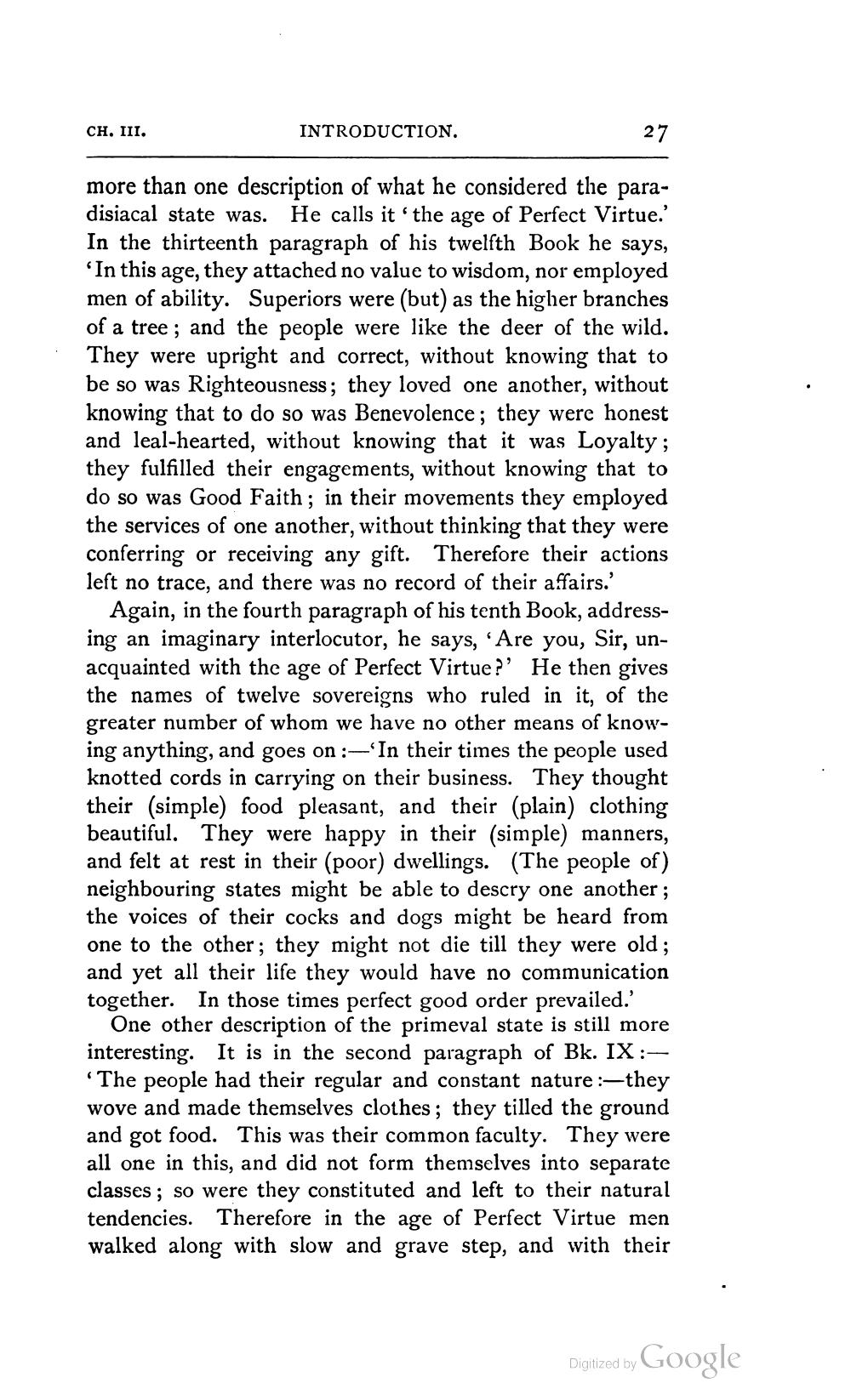________________
CH. III.
INTRODUCTION.
27
more than one description of what he considered the paradisiacal state was. He calls it 'the age of Perfect Virtue.' In the thirteenth paragraph of his twelfth Book he says, 'In this age, they attached no value to wisdom, nor employed men of ability. Superiors were (but) as the higher branches of a tree; and the people were like the deer of the wild. They were upright and correct, without knowing that to be so was Righteousness; they loved one another, without knowing that to do so was Benevolence; they were honest and leal-hearted, without knowing that it was Loyalty; they fulfilled their engagements, without knowing that to do so was Good Faith; in their movements they employed the services of one another, without thinking that they were conferring or receiving any gift. Therefore their actions left no trace, and there was no record of their affairs.'
Again, in the fourth paragraph of his tenth Book, addressing an imaginary interlocutor, he says, 'Are you, Sir, unacquainted with the age of Perfect Virtue?' He then gives the names of twelve sovereigns who ruled in it, of the greater number of whom we have no other means of knowing anything, and goes on:-'In their times the people used knotted cords in carrying on their business. They thought their (simple) food pleasant, and their (plain) clothing beautiful. They were happy in their (simple) manners, and felt at rest in their (poor) dwellings. (The people of) neighbouring states might be able to descry one another; the voices of their cocks and dogs might be heard from one to the other; they might not die till they were old; and yet all their life they would have no communication together. In those times perfect good order prevailed.'
One other description of the primeval state is still more interesting. It is in the second paragraph of Bk. IX :— 'The people had their regular and constant nature:-they wove and made themselves clothes; they tilled the ground and got food. This was their common faculty. They were all one in this, and did not form themselves into separate classes; so were they constituted and left to their natural tendencies. Therefore in the age of Perfect Virtue men walked along with slow and grave step, and with their
Digitized by Google




